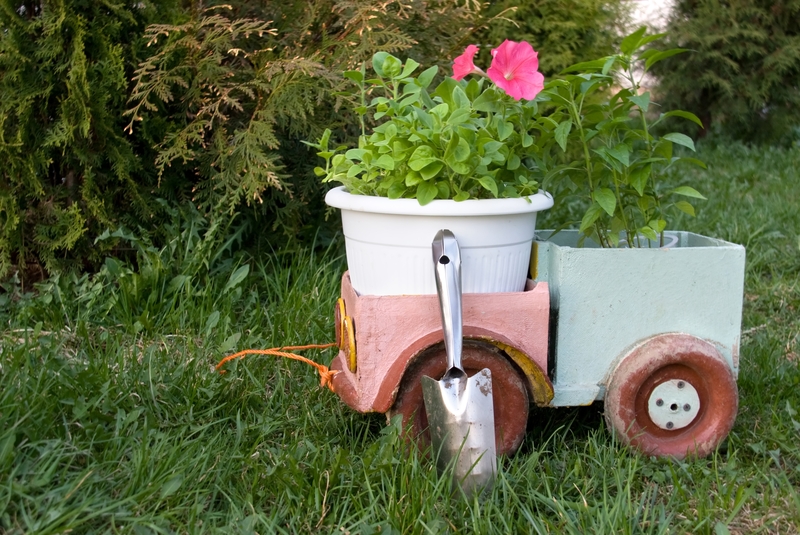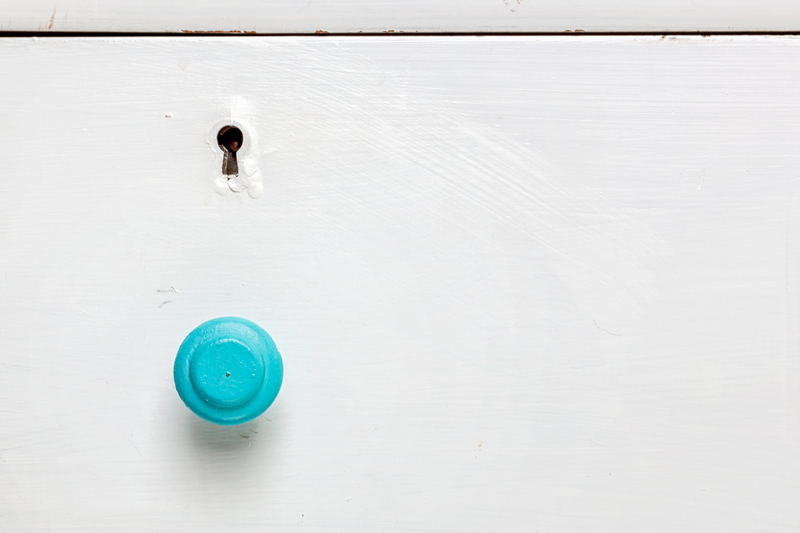How to Spend Less and Get Rid of Bulky Waste Responsibly
Getting rid of large or bulky waste can be a hassle, but it is a necessary chore for keeping your home tidy and safe. Whether you're decluttering, moving, or renovating, knowing how to spend less and get rid of bulky waste responsibly is crucial for both your budget and the environment. In this comprehensive guide, we will detail the best practices and economical methods to dispose of large waste items without harming the planet, all while saving you money.
Understanding Bulky Waste and Why Responsible Disposal Matters
Bulky waste refers to items that are too large for regular trash collections, such as furniture, mattresses, appliances, carpets, and even some electronics. Improper disposal of these items can lead to:
- Environmental pollution from landfills and illegal dumping.
- Wasted valuable resources that could have been recycled or reused.
- Potential fines from local authorities for improper waste disposal.
Being aware of cost-effective bulky waste disposal methods protects your wallet and our planet, making it a win-win situation!

Smart Ways to Save Money on Bulky Waste Removal
1. Plan Ahead and Reduce Waste at the Source
The best way to save money is to avoid unnecessary waste in the first place. Here are some proven tips for reducing future bulky waste:
- Buy only what you need: Before buying large furniture or appliances, consider if it is truly necessary.
- Choose quality over quantity: Durable, high-quality items last longer and reduce frequent replacements.
- Opt for multipurpose furniture: Items such as sofa beds or expandable tables minimize clutter.
- Repair and upcycle: Fixing or creatively reusing old items can give them new life and prevent unnecessary disposal.
2. Sort and Assess Your Bulky Waste
Not all bulky items should end up in the landfill. Before considering disposal, sort through your unwanted items and ask yourself:
- Is it still functional?
- Can it be sold or donated?
- Can parts be recycled?
This assessment helps ensure you're only disposing of what's truly junk, making it easier and cheaper to manage.
3. Take Advantage of Free or Low-Cost Council Collection Services
Many local authorities run bulky waste collection programs that are often free or much cheaper than hiring private services.
- Visit your council's website and look for details on their collection schedule.
- Find out which items are eligible and how to prepare them (some may need dismantling).
- Book in advance, as slots can fill up quickly, especially during peak moving seasons.
Utilizing council services is a great way to spend less and get rid of bulky waste legally and efficiently.
4. Donate or Gift Unwanted Items
Many large household items such as beds, sofas, and wardrobes can be reused. Consider these avenues before disposal:
- Charity shops and nonprofits: Many organizations accept reusable furniture and white goods. Some offer free collection!
- Community groups: Use platforms such as Freecycle, Facebook Marketplace, or local giving groups.
- Friends and neighbors: A quick text or post can find a new home for your unwanted pieces, saving you disposal costs.
Donating not only diverts waste from landfill, it can help someone in need and give you peace of mind.
5. Sell What You Can
If your bulky items still have value, selling is a smart and budget-friendly bulky waste disposal option:
- Online marketplaces like Gumtree, Craigslist, or Facebook Marketplace are great for large-item sales.
- Garage sales and car boots are ideal for furniture and DIY materials.
- List with clear photos, descriptions, and mention if buyers must collect.
6. Recycle Responsibly
Most communities have household waste recycling centers equipped to handle bulky waste responsibly.
- Check if your items can be dismantled and separated into recyclable components, such as metal, wood, and textiles.
- Locate your nearest recycling center and find out which days they accept bulky goods.
- Transport items safely; consider borrowing a van or teaming up with a neighbor to save on transport costs.
Recycling helps the circular economy and can often be done free of charge if you deliver the items yourself.
7. Share or Rent a Skip (Dumpster)
If you have a large volume to clear, renting a skip could be convenient but expensive. Reduce the cost by:
- Sharing the skip (and cost) with neighbors or friends also doing clear-outs.
- Shopping around for local skip hire deals.
- Ensuring only allowed items go in the skip to avoid extra fees.
8. Use Responsible Private Waste Collectors
If municipal services aren't an option, private junk removal companies can take bulky items. Always:
- Check reviews and ensure they are a licensed waste carrier.
- Get quotes from several providers for the best deal.
- Request a waste transfer note as proof of responsible disposal.
Beware of "man-with-a-van" offers that are not licensed--illegal dumping can result in heavy fines for you!
Creative Alternatives to Throwing Away Bulky Items
Thinking outside the landfill can be the most sustainable (and sometimes fun) way to get rid of unwanted large items:
1. Upcycling Projects
Turn tired furniture into something new and beautiful. For example:
- Paint old chests or dressers for a vintage look.
- Convert wooden pallets into outdoor seating.
- Transform bed frames into garden trellises.
Upcycling not only saves you money but also expresses your creativity.
2. DIY Deconstruction
If an item is too far gone, disassemble it into parts that are easier to store, move, or recycle. Separate out:
- Metals (from bed springs or appliance frames)
- Wood (can sometimes be composted or used as firewood)
- Fabric and stuffing from sofas and mattresses
This makes it easier to put each material in the correct recycling stream, ensuring responsible disposal of your bulky waste.
3. Host a "Swap or Freebie" Event
Invite your community to exchange large household items. This method:
- Reduces waste
- Promotes community spirit
- Saves everyone money
Events like these can be promoted online or through local noticeboards.
Tips for Responsible and Cost-Effective Bulky Waste Disposal
- Always check local disposal rules. Regulations, accepted items, and fees vary widely.
- Don't leave items curbside without permission. This can attract dumping fines and is unsightly.
- Use tools like "waste calculators" on council or recycling websites to estimate quantities for disposal or collection.
- Prepare in advance by storing bulky waste in a covered area until collection or transport.
- Reduce fees by combining loads with neighbors when possible.
- Keep receipts and documentation from collectors to prove legal, responsible disposal if queried.
How to Avoid Common Bulky Waste Mistakes
It's easy to make mistakes when trying to save money on bulky waste removal, but some shortcuts can backfire:
- Never fly-tip: Dumping items in unauthorized locations is illegal and environmentally harmful.
- Don't burn waste: Burning furniture or mattresses can release toxic fumes and pollute your neighborhood.
- Beware of scammers: If a cheap disposal service doesn't provide paperwork, it could be illegal.
- Don't mix hazardous items (like fridges, TVs, or chemicals) with regular waste - these require specialist handling.
Following the above advice makes sure your bulky waste is managed legally and safely.
Why Responsible Bulky Waste Removal Matters for Our Environment
Every year, millions of tons of bulky waste end up in landfills. This not only wastes resources but contributes to environmental problems such as:
- Greenhouse gas emissions from decomposing waste
- Soil, air, and water pollution from hazardous materials
- Loss of raw materials that could have been recycled
Choosing to get rid of large items responsibly helps:
- Conserve resources
- Reduce pollution
- Support local communities through donations and reuse
- Comply with the law and avoid costly fines
Frequently Asked Questions about Bulky Waste Disposal
What counts as bulky waste?
It includes anything too big for a household wheeled bin: furniture, beds, white goods (fridges, washing machines), carpets, and large toys or bikes.
How do I know if my local recycling center accepts bulky waste?
Check your local authority or center's website for up-to-date details on accepted items, operating hours, and necessary identification or paperwork.
Can I leave bulky items on the curb for regular collection?
No. Bulky items need separate collection. Contact your local council or approved private service to arrange a pickup.
What if I'm unable to move large items myself?
Many donation centers and local authorities offer a collection service, sometimes with volunteers who can help. Some private companies also provide affordable labor as part of their fee.
Are there any fees for disposing of bulky waste?
This varies: council collections may be free or have a small charge. Private providers charge more, but costs can be split with others.

Summary: The Best Ways to Spend Less and Get Rid of Bulky Waste Responsibly
- Reduce and reuse before you throw: Upcycle, repair, or repurpose wherever possible.
- Donate or sell: Find new homes for usable items.
- Use council or community services: Take advantage of affordable (or free) local options for bulky waste collection.
- Recycle: Deliver items to your local recycling center yourself where possible.
- Share resources: Pool together with neighbors for collections or skip hire to reduce costs.
- Stay compliant: Always use licensed waste carriers and keep documentation.
By following these step-by-step strategies, you can save money and make a real difference to the planet. Remember, how you choose to spend less and get rid of bulky waste responsibly is a direct investment in your community's health and the environment's future.
Further Resources
- Recycle Now: A-Z of Recycling
- Find Your Local Council
- Freecycle Community
- WRAP: Waste and Resources Action Programme
Start today! It's possible to spend less and get rid of bulky waste responsibly with just a bit of planning and creativity. Your home (and planet) will thank you.
